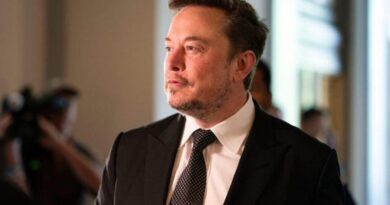Strategies for Trump to Overcome Putin’s Cease-Fire Deception

You’ve got to give credit to Russian President Vladimir Putin: His reaction to President Donald Trump’s cease-fire proposal is something truly crafty.
He aims to sidestep a direct confrontation with Trump while ramping up his military actions in Ukraine — feigning openness to a cease-fire while quickly shifting to the “details” that need to be discussed.
These details are intricate and include unacceptable stipulations.
In essence, Putin’s “yes” is a veiled “no” regarding Trump’s call for a halt to hostilities.
Keep in mind, Putin’s goal in Ukraine extends beyond securing his hold on the 20% of the territory he currently occupies; he seeks to exert political influence over the entire nation.
This ambition necessitates further territorial conquests, focusing on key cities like Kyiv, Kharkiv, Kherson, and Odessa.
He has no intention of ceasing military operations while his forces are gaining ground, albeit gradually, and at a steep human cost.
Additionally, he still needs to subdue Ukrainian forces in the Russian Kursk Oblast.
Ukraine’s swift acceptance of Trump’s proposal created a conundrum for him: how to maintain military aggression without provoking the American president.
Putin is acutely aware that Russia’s economy, now on a war footing, is grappling with soaring inflation and interest rates, putting Russian companies at significant risk.
Recruitment for his high-casualty military campaign is barely sufficient, exacerbating the economic strain.
Consequently, the Russian leader is attempting to prompt the Trump administration to withdraw from Ukraine. Without U.S. weaponry — however funded — Ukraine would struggle to thwart further Russian advances.
This is likely why he reacted positively to the White House’s recent decision to “pause” U.S. military shipments and intelligence sharing, but was displeased by the subsequent decision to resume these efforts.
Moreover, he is anxious about Trump’s remark that if Putin rejects the opportunity for peace, he would impose significant new sanctions.
His fear intensifies at the prospect that if the White House sees him as an impediment to peace, it might consider military options, as Vice President JD Vance has suggested, to guarantee Ukraine’s status as a “sovereign, independent nation.”
Part of his strategy involves controlling negotiations with Washington. He was eager to engage with Special Envoy Steve Witkoff, an accomplished businessman not particularly versed in Russian policies or strategies.
To bolster Witkoff’s credibility, Putin proposed offering Marc Fogel, a U.S. teacher unjustly imprisoned in Russia, as an early foreign policy win for Trump.
(Putin faced no cost for this gesture, as the U.S. released Russian money-launderer Aleksandr Vinnik in exchange for Fogel.)
Putin is banking on the belief that Trump values a quick cease-fire deal more than one that guarantees Ukraine’s independence and sovereignty.
He hopes Trump will conclude that persuading Russia to take the right path would be more complex and time-consuming than pressuring Ukraine to accept concessions, even if that entails significant future risks.
However, Putin’s approach allows him flexibility if the administration does not fall for his tactics.
He has utilized his influence over Russian media to project contrasting narratives regarding his military actions in Ukraine and the peace negotiations.
On one hand, the narrative is maximalist, asserting that Russia is faring well in the conflict and has rigid conditions for any peace agreement.
Yet, this year, several prominent Russian media figures suggested that Russia might have already achieved its objectives in Ukraine and that it could be time to consolidate those gains.
Putin appears hopeful that Trump’s initially positive reaction to his cease-fire comments indicates his ruse is effective.
Nevertheless, Trump mentioned he wants to examine the outcomes of Witkoff’s discussions in Moscow.
To fortify his stance, Putin is seeking a phone call.
He might recognize the warning signals from the Trump administration regarding Moscow when the Treasury Department confirmed this week that the U.S. would allow the sanctions waiver for energy transactions involving Russian financial institutions to lapse.
These transactions have now become prohibited.
Regardless of Trump’s ultimate judgment, Putin possesses the ability to adapt.
If Washington leans in Russia’s favor, Putin can afford to relax and watch as the U.S. pressures Kyiv for more concessions.
However, if Trump perceives Putin’s gestures as mere sleight of hand, the Russian leader may opt to accept the cease-fire terms.
Ultimately, he is keen to avoid facing additional U.S. sanctions and, particularly, an influx of more advanced U.S. weaponry to Ukraine.
Such developments would guarantee that Putin’s forces could neither advance further nor potentially lose any territory they have already taken.
A policy of peace through strength, therefore, can be advantageous for Trump’s objectives.
John Herbst, former ambassador to Ukraine and Uzbekistan, is senior director of the Atlantic Council’s Eurasia Center.



